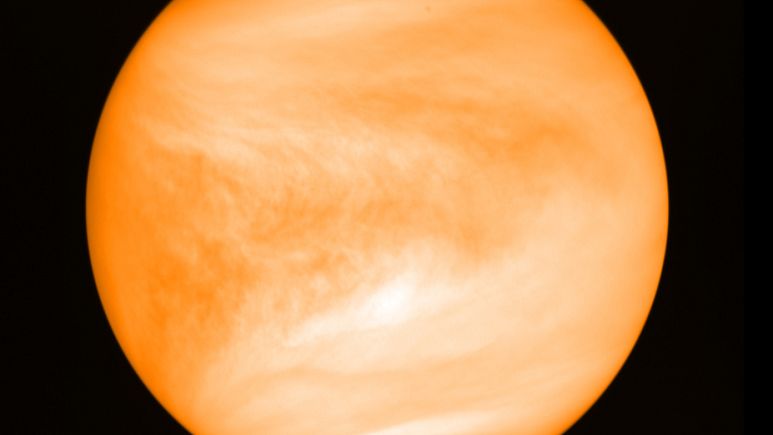Life on Venus? Astronomers see hints of life in planet's clouds

Astronomers have found a potential sign of life in the clouds surrounding Venus, which is sometimes called Earth's twin planet due to its similar size.
Two telescopes in Hawaii and Chile spotted the chemical signature of phosphine, a noxious gas that on Earth is only associated with life, according to a study in Monday’s journal Nature Astronomy.
On Earth, phosphine can only be formed by an industrial process or in animals or microbes.
Study co-author Sara Seager, an MIT planetary scientist, said researchers “exhaustively went through every possibility and ruled all of them out: volcanoes, lightning strikes, small meteorites falling into the atmosphere".
"Not a single process we looked at could produce phosphine in high enough quantities to explain our team’s findings."
The study authors wrote that the cause could therefore be "unknown photochemistry or geochemistry, or possibly life".
Several experts agree that the finding is exciting but said it does not mean there is proof of life on another planet.
“It’s not a smoking gun," said study co-author David Clements, an Imperial College of London astrophysicist.
“It’s not even gunshot residue on the hands of your prime suspect, but there is a distinct whiff of cordite in the air which may be suggesting something.”
Venus has temperatures of 425 degrees Celsius and no water.
“Venus is hell. Venus is kind of Earth’s evil twin,” Clements said. “Clearly something has gone wrong, very wrong, with Venus. It’s the victim of a runaway greenhouse effect.”
It could be that some kind of single-cell microbes are in Venus' clouds which are about room temperature with droplets that contain water but mostly sulfuric acid, researchers hypothesised.
Several scientists not involved in the study told the Associated Press they were hesitant but excited about the finding.
NASA hasn’t sent anything to Venus since 1989, though Russia, Europe and Japan have dispatched probes. The European Space Agency's sent a spacecraft to study Venus in 2005 with the mission concluding in 2014.